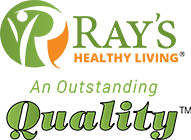Fast Facts about Cholesterol
- There are around 73.5 million American adults who have bad cholesterol.
- Only 48.1% of this high-cholesterol population is actually doing something to medically control and lower their cholesterol levels.
- The risk of getting a heart disease is twice as much for high-cholesterol people as it is for the normal population.
- Around 31 million American adults have total cholesterol level higher than 240 mg/dL.
Source
- Between 2011 and 2014, 12.1% of the adult population aged 20 and above had high serum total cholesterol.
- The CDC advises adults to get their cholesterol levels checked once in every 5 years.
Source
Cholesterol is a lipid (type of fat) present in the blood. The cells in your body require cholesterol and the body makes the required amount on its own. However, we also intake cholesterol from the food we eat.
When the body gets too much cholesterol, the excess cholesterol starts building up on your arterial walls. This narrows down your arteries – the condition is often referred to as atherosclerosis in medical terms or the hardening of arteries in layman terms. This is where all the heart and circulation related health problems begin. When the arteries become narrow, it is harder for the blood to flow to the rest of the body through them.
There are two basic types of cholesterol:
- HDL (High-density lipoproteins) also known as the “good cholesterol” is required by the body for the healthy functioning of the heart.
- LDL (Low-density lipoproteins) are normally called the “bad cholesterol” responsible for increasing the risk of diseases and strokes.
Symptoms
People who smoke, are obese, or have high blood pressure usually have high levels of bad cholesterol. For some people, the high cholesterol levels are passed down through their genes. Whoever has this condition is highly susceptible to a range of fatal health problems including heart attacks and stroke.
The symptoms high cholesterol may often go unnoticed. These symptoms may include:
- Extreme fatigue
- Chest pain/angina
- Shortness of breath
- Nausea
- Dizziness
It is important to get cholesterol levels checked regularly. Cholesterol cannot be completely eliminated; however, you can always control the condition with regulated diet and medication.
Recommended Supplements
While eating a healthy diet and regular exercise helps to manage Cholesterol, it is not enough to keep you fit and healthy. Supplements are essential for managing Cholesterol and reducing its symptoms. But it should be kept in mind that supplements should not be used to replace the treatment for Cholesterol. It is not always true that natural products are safe for use. Many products can react with your body and produce an adverse reaction. Thus, it is better to be safe and consult your before starting to use any supplements for managing your condition.
The following supplements have proven to benefit people with Cholesterol:
Bilberry
From treating diarrhea to improving blood circulation, bilberry is a fruit of Eurasian origin with numerous health benefits. The fruit, just like most other berries contains anthocyanosides and polyphenols that lower bad cholesterol levels in the body, improve blood circulation, and boost the overall cardiovascular health ensuring a healthily functioning heart.
Cayenne
Cayenne or the Guinea spice is reputed as an effective treatment for inhibiting and reducing the buildup of plaque within the arteries. This unique spice has been long used for various medicinal purposes, including the improvement in circulatory health. Although there are no plausible sources that link cayenne directly to a reduction in cholesterol levels, but the spice definitely reduces the risk of cardiac illnesses that result from high cholesterol levels.
Fenugreek
Grown worldwide, this herb has been used for centuries in Asian cuisines as well as medicine. Fenugreek seeds are rich in steroidal saponins that are responsible for slowing down the cholesterol absorption into the intestines, in addition to slowing down the rate at which the liver produces cholesterol in the body.
Hawthorn
The extract from hawthorn berries can be best described as the complete heart tonic. When dealing with cholesterol, hawthorn works two ways: it increases the level of HDL (good cholesterol) while simultaneously decreasing the level of LDL (bad cholesterol) in the body. It also reduces the plaque buildup in arteries, promoting better circulatory health.
Milk Thistle
Milk Thistle is another wonder of the nature that is extremely beneficial in controlling cholesterol levels in the body. The herb protects the liver and promotes increased output of good cholesterol in the body. It also helps reduce the amount of bad cholesterol in the body and promotes an overall good heart and circulatory health.
The above natural supplements are known to help in controlling and managing Cholesterol, but you should exercise proper caution and ask your doctor before adding any such supplements for in your diet. Herbs have lasting and strong effects on the body and can also interact with other drugs and medications, causing dangerous and adverse reactions. If you use any medication for your disease, talk to your doctor before you decide to start any supplements or herbal products to manage your health condition.
